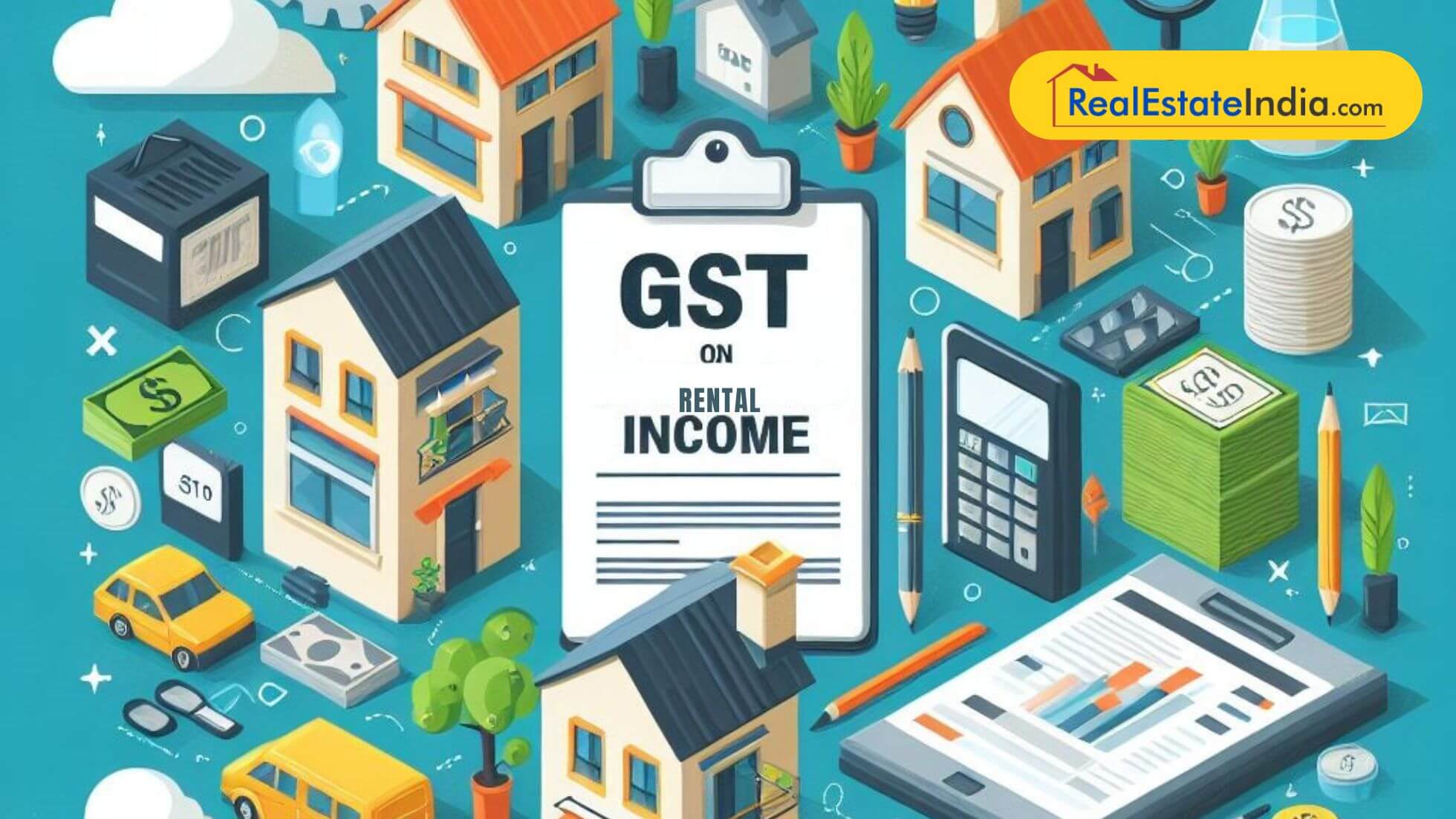
Introduction
GST on Rent is a very confusing topic, generally, people are confused about whether we should pay GST tax on rental income or not, and if so then on which residential property or commercial property. Needed And how much should be given if it exceeds the income? We will give you the answers to all these questions here, so let's start.
Goods and Services Tax came into action on 1st July 2017. This indirect tax is levied on the supply of goods and services and is charged at every point of sale within India. A few key features of this tax regime are-
-
It is a Destination-based tax charged in the state in which the goods and services are consumed.
-
It makes taxation a unified system throughout the country. This is why the Goods and Services Tax survives on the rule of one nation one tax.
-
This revolutionary tax regime has crushed down many indirect taxes like VAT, excise duty, etc.
GST impacts many industries, and the real estate sector is no different. When a real estate owner rents out a product, it is a supply of service. This leads to the applicability of GST on rental income. The rental income forms the total rent received from the tenant excluding the maintenance charges and advance payment. Many factors decide the applicability of GST on renting out an immovable property. Some of them include-
-
Type of real estate and its end use
-
Registration status of the Landlord,
-
Nature of rent agreement, etc.
Overview of GST on Rental Income
The applicability of GST is different in the case of residential and commercial real estate. The applicability of GST on rental income depends on the usage of the property. The landlord and the tenant must have clear communication and thorough documentation to avoid any sort of confusion.
Explanation of How GST is applicable on rental income
-
GST on rent of a Residential Property-
-
Exempt- When a residential property is rented out for residential purposes, this tax is exempt. So, go rent out your residential dwelling for a tenant to live in and enjoy the exemption.
-
Taxable- When using a residential property for business purposes, GST will apply to the rental income. It is charged at the percentage rate of 18 GST on house rent.
In case residential real estate is used in a personal capacity, the rent must be paid through the own account. Tax will apply if the rent is paid through a firm's account. For example, Mr. Vivek (an unregistered landlord) is using a residential dwelling and paying the rent through the firm's account, tax is payable on the rent amount. This is applicable irrespective of the fact that Mr. Vivek is using it for residential purposes or running a firm under the roof.
2. GST on rent of a Commercial Property
-
Taxable- Renting commercial real estate like offices, shops, etc. for business purposes attracts GST. No matter if it is rented out partially or completely, GST on commercial rent is applicable @ 18 %.
Importance of Understanding GST Implications for Landlords
Before stepping into the shoes of a landlord, a thorough understanding of GST implications is a must. This helps in complying with the legal obligations and avoiding penalties. A few points that a landlord must understand are-
The Taxable Income of the Landlord is above the Threshold limit
-
Landlords renting residential dwellings for living purposes are completely exempt from GST.
-
If the rental income is received from a commercial activity carried out in a residential property, the registered landlord must pay the GST rate on rent at 18%.
-
Registration for GST is a must if the annual turnover from taxable sources of income exceeds Rs 20 lakh, inclusive of rental income. Landlords falling under this category should collect and pay GST on rent received at the rate of 18 %. This rent can be received from the business use of a residential property or a commercial real estate.
2. The taxable income of the Landlord is below the threshold limit
Landlords with an annual turnover of below Rs 20 Lakhs can skip the GST registration. They don't need to collect and pay GST on rent received. But in case the residential property is used for commercial activities and the Landlord is unregistered, then the tenant (business owner) needs to pay the GST amount on rent, as per the Reverse Charge Mechanism.
A brief about the Reverse Charge Mechanism
In case residential real estate is rented out to a business entity for carrying out commercial activities, this tax is applicable at 18%. The business activity could be anything like warehousing in a room, using it as a guest house, etc. Even if the landlord is unregistered under GST, the tenant is liable to pay the tax on rent under RCM. The motive of the govt. to start this mechanism is to make sure that GST is well collected if the property is used for a business activity. Here, the tenant must pay the Goods and Services Tax and can avail the ITC.
Tax on Rental Income in the Pre-GST era.
Before 1st July 2017, service tax was applicable on rental income from a real estate product. Although rental income from a residential property used for living was exempt even then. The threshold limit during that time was 10 lakhs and the GST rate on rental income was 15 %. The landlords having taxable income above the threshold limit must have tax registration. Let's have a look at how rental income was treated in India during the pre-GST era.
|
Type of property |
Tax applicability if income is more than Rs. 10 lakhs |
Tax Rate |
|---|---|---|
|
Residential used for living |
Not Applicable |
Nil |
|
Residential used for business purpose |
Applicable |
15% |
|
Commercial |
Applicable |
15% |
GST on renting residential property.
As we have stated earlier in this article, GST is nil if rental income is from a property for residential purposes. This is irrespective of the amount of rental income. But if you use a residential property for business purposes, tax at the rate of 18 % is applicable. This includes using the residential dwelling as a guest house or for paying guests. In this case, the tenant i.e. the business entity pays the tax under the reverse charge mechanism. As per this mechanism, the responsibility of paying the tax is of the recipient of the service.
GST on renting of a commercial property.
The rate of tax on rent of commercial real estate is 18 %. The registered landlord will collect the tax amount from the tenant and deposit it with the Government. Well, registration is not mandatory if the annual turnover of the landlord from all taxable sources is less than Rs. 20 lakhs. So, this excludes them from the collection and payment of GST on rent from commercial real estate.
Let's peep into this table for better clarity on the need for tax registration.
| Type of Property | Does annual turnover of landlord exceed 20 lakhs | Registration Needed |
|---|---|---|
| Residential used for living | Not applicable | Not required |
| Residential used for business purposes | Yes | Mandatorily required |
| No | Not mandatory | |
| Commercial | Yes | Mandatorily required |
| No | Not mandatory |
List of GST Applicability on renting of residential and commercial property
As we have read the applicability of this tax differs in the case of rental income from residential and commercial real estate. Let's take a glance at how it is applicable, and the cases exempt from GST on rent.
|
Type of property |
Is GST Applicable on Rent? |
Rate |
Who Pays It? |
|
Residential used for living |
Not Applicable |
Nil |
Not Applicable |
|
Residential used for business purposes |
Applicable, if turnover of landlord is Rs 20 lakhs and above |
18% |
Landlord collects it from the tenant and pays to the Government |
|
Commercial |
Applicable, if turnover of landlord is Rs 20 lakhs and above |
18% |
Landlord collects it from the tenant and pays to the Government |
What are the ITC provisions when GST is charged on the rent?
Whenever we pay GST on rent, a credit of income tax arises. However, the tax amount must be well deposited with the required documentation to claim the Income tax credit. A few factors drive the ITC provisions-
-
Residential property- When a residential dwelling is rented and used for residential purposes, GST does not apply altogether. So, in this case, the question of ITC does not arise. However, using a residential house for business purposes invites GST applicability. The tenant i.e. a registered business entity can claim the credit of tax paid on rent only if the product is used for the expansion of the business.
-
Commercial property- If a registered business is running under the roof of a commercial building, tax @ 18 % is applicable. This is burdened on the tenant and deposited by the landlord after collection. The tenant can then claim the ITC on tax paid. This ITC can be deducted from the tax liability of the tenant.
-
Tax Invoice- The tenant must have a tax invoice to claim this tax. This invoice is issued by the landlord to the tenant. This invoice should mention the GST on rent.
Well, the rules of GST may change in a few months or years. Do stay updated to ensure compliance with the rules and regulations. For clarity, kindly go through the example on how to calculate ITC on tax on rent
Formula- tax paid on the rent invoice * filling frequency/ total months in the year.
If the GST paid by the tenant is Rs. 18000 and the return is filed quarterly, the ITC would be calculated in the following manner-
ITC = Rs. 18000 * 4/12 = Rs 6000.
Is ITC on repairs and renovation of property given on rent allowed?
Any credit from the Income Tax Department pleases the receiver. A deduction from the total tax amount relieves the shoulders of many. Such credit arises if the expense is as per the Govt regulations. The expense of getting a structure repaired is a part of maintenance. But whether ITC credit on repairs and renovation of an immovable property arises or not is subject to several factors-
-
Property rented out for residential use- Under the GST regime, the expenses made on the repair and renovation of such dwelling do not attract ITC.
-
Property rented out for commercial use- As per the GST law, if a capital expense is made to increase the product value, ITC is not applicable. But the case is different if expenses are made to keep the structure maintained. Repair expenses made for the regular upkeep of the real estate are eligible for ITC. But for this, certain conditions must be met, like
-
The landlord must be registered.
-
The property owner must have valid bills from the builder or supplier of construction materials.
-
The repairs are done for the upkeep of the real estate product and are not for increasing its lifespan.
GST on rent VS GST on rental Income
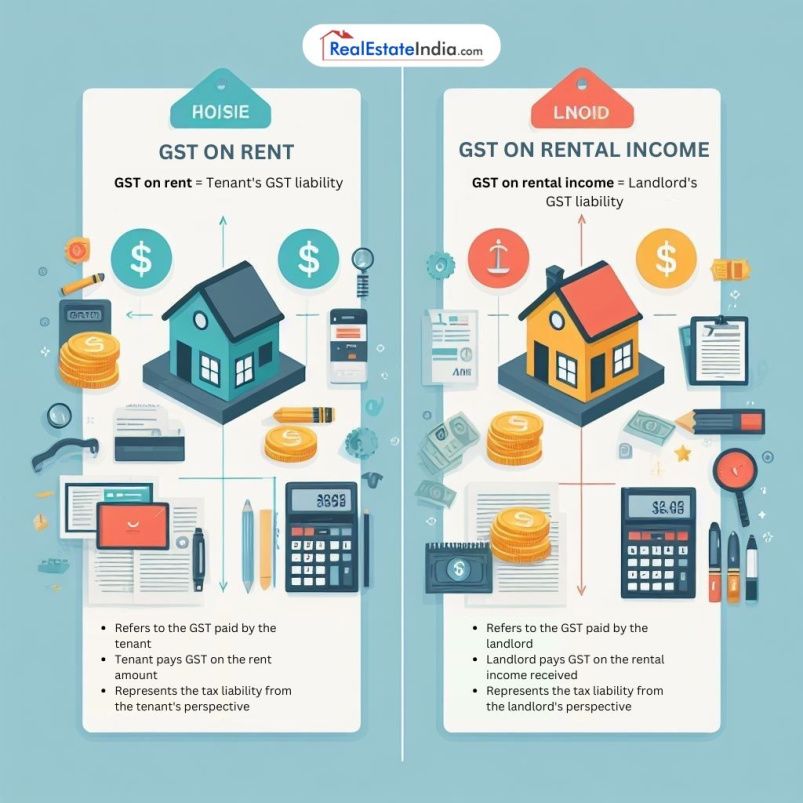
What is GST on rent?
It is the GST amount that the tenant is liable to pay when the property is used for business purposes. It is paid at the rate of 18%. A few points to provide clarity-
-
Tax on rent is required to be paid under the reverse charge mechanism by the tenant registered under the GST Act.
-
The Good and Services Tax on commercial property rent paid by the tenant running a registered business is eligible for ITC.
-
Apart from this, the rent payer must deduct 10 % TDS on rent of properties exceeding 2.4 lakhs per annum.
What is GST on rental income?
It is the liability of the landlord receiving rent from the tenant, who is using the real estate product for business purposes. Let's unfold this case-
-
The GST liability is applicable if the rental income is generated by carrying out business activities in the rented-out property. This is applicable even if a residential property is rented.
-
Landlords having an annual income below the threshold i.e. Rs 20 lakh per annum are completely exempt from GST registration. So, only those having a taxable income of 20 lakhs and above are compulsorily required to get GST registration.
-
In short, an 18 % tax is applicable only if the landlord is registered under the Goods and Services Tax and the dwelling is used for business purposes.
-
The tax amount so collected by the landlord is meant to be deposited to the govt. authorities as per the Reverse Charge Mechanism.
Here we summarize this concept with the help of a table.
|
Case |
Applicability |
Who pays it? |
Scenario in which it is paid |
|
GST on Rent |
Tenant |
Tenant |
Property is used for business purposes |
|
GST on rental income |
Landlord |
Registered Landlord |
Property is used for business purposes and landlord's turnover is more than Rs. 20 lakhs |
Does renting out a property attract GST?
GST applicability on a property depends on its type and landlord's GST registration status.
-
Residential - Renting a residential property for living purposes is exempt completely. This rule applies irrespective of the GST registration status of tenant and landlord. But if a house is rented out for business purposes, GST @ 18 % is applicable. This is paid when the landlord's annual turnover is 20 lakhs and above. And those having annual income below the threshold limit are exempt from GST registration. This GST is paid by the tenant under the reverse charge mechanism and deposited by the landlord to the authorities.
-
Commercial- Renting commercial real estate like shops, offices, factories, etc. is subject to GST @ 18 %. Landlords registered under GST need to pay the tax on rented property. However, only the landlords having an annual income of 20 lakhs and above need to apply for GST registration.
Confused? Let's check out this table for a clear picture with the help of this table.
|
Case |
Is GST applicable on Rent? |
Who pays it? |
Rate |
|
Residential used for living. |
No |
Nobody |
Nil |
|
Residential used for business activities |
Yes |
RCM or Registered Landlord |
18% |
|
Commercial |
Yes |
Registered Landlord |
18% |
GST Registration for property owners
Landlords need to register under this tax scheme based on the type of property rented, end use of the rented property, and annual turnover from all taxable sources of income. Let's take a look at the different scenarios demanding the GST registration for landlords-
Criteria for GST Registration
-
Renting of a residential dwelling for living purposes- This case is completely exempt. The landlord does not need to register for GST irrespective of the rent amount.
-
Renting of residential property for business purposes- Under the Reverse Charge Mechanism, even if the landlord is not registered for GST (in case his taxable income is less than 20 lakhs), the tenant is liable to pay the GST on the rent of the residential property. For a smooth supply of service, the landlords should furnish valid rent invoices to the tenant for record-keeping.
-
Renting of commercial property- If the annual turnover of the landlord from all sources of taxable income is less than the threshold limit of 20 lakhs, registration is not required. In such cases, the landlord is neither required to pay or collect GST on rent. But if the annual taxable income of the landlord is above the threshold limit, registration under the Goods and Services Tax is mandatory.
Considerations and Advantages for Landlords
The threshold limit set by the Indian Government plays a major role in evaluating whether a landlord is compulsorily required to register under GST or not. A few points that a landlord must consider are-
-
Threshold limit- If the total income of the landlord from all taxable sources is below the threshold limit of 20 lakhs, the registration is optional.
-
Evaluation of GST applicability- A property owner must be able to access all the rented properties that attract GST. The landlord must have a clear picture in case of every property rented out to avoid penalties and tax evasion.
-
Adherence to Govt regulations- A registered landlord must maintain documents like rent agreements, and rent invoices, and file the returns timely. The landlord must issue a correct rent invoice with the taxable rent amount and tax charged at the rate of 18 %.
-
Deposit of tax- A registered landlord must deposit the tax on rent for the dwelling collected from the tenant. This applies when the rented product is either partially or wholly used for business purposes.
A few advantages for registered landlords are
-
Input Tax Credit- A registered landlord can claim Input Tax Credit on tax paid for the expenses related to the maintenance of the property. This credit can be adjusted against the overall tax liability of the landlord.
-
Builds reputation- Being registered with the GST council enhances the credibility of the landlords. This in turn attracts the tenants and builds market reputation.
How to calculate GST on rental income?
The owner of the property calculates the GST on rental income. The current rate of GST on rent is 18 % if the rented house is used for business purposes. The formula for this calculation is-
GST on rent = Monthly rent * GST rate
For example, if you receive a rent of Rs. 100000 on the Commercial property rented out by you, the Goods and Services Tax amount will be calculated in the following manner-
GST on rent = 100000* 18 % = Rs. 18000 per month
The landlord must deposit this tax amount with the Government authorities. The landlord must be aware of the complexities related to GST applicability and eligibility for ITC. For this, it is highly suggested to consult a professional to get assistance in religious compliance with government regulations. So, get your facts clear about how this tax is charged on rent and manage multiple rental properties like a pro.
Challenges and Solutions
Common challenges faced by property owners regarding GST on rental income
There are many aspects to be considered by the landlord while abiding by the GST law. the landlord should have a clear picture of the impact of GST on rent and whether the case attracts this tax or not. Proper compilation of invoices, rent agreements, records of tenants, returns filed, etc. must be maintained by the landlord. Let's check out some of the major challenges faced by landlords concerning Goods and Services Tax on rental income-
-
Thorough understanding of complicated regulations- A landlord should be capable of understanding the complex rules of GST on rental property. The property owner should be able to differentiate between the cases attracting an exemption and those applicable for this tax. If such understanding can't be gained personally, then a taxation or real estate professional must be consulted.
-
Paperwork and record-keeping- The registration for GST demands plenty of paperwork. A registered landlord must file regular returns, keep a record of rent invoices issued, etc. All this is highly time-consuming and needs thorough attention. It can be more complex if the landlord owns multiple properties.
-
Ineligibility of ITC- When the landlord is not eligible for claiming ITC on the GST paid (as the conditions required for the same are not met), payment of tax exhausts the cash flow.
Considering the challenges involved, the income generated via a rental property is always embraced. Rental income is a highly secure source of revenue from commercial and residential real estate. It uplifts the purchasing power of the landlord and boosts the economy too. Though tax compliance is a tricky matter, once you understand the rules, many benefits can be availed.
A few strategies can be adopted to overcome these challenges. Some of them are-
-
Consult a professional- Seeking professional advice is always beneficial to avoid confusion. A taxation professional can assist the landlord on various matters including the applicability of GST, eligibility for GST registration, documents to be maintained, eligibility to claim an input tax credit, etc. These professionals are updated with the latest amendments in the tax laws. They help you stay informed about the latest changes in the regulations.
-
Cash Flow Management- Preparing proper budgets well in advance puts the landlord in a comfortable situation. Account for the tax liability while calculating all sorts of rental incomes and ITC claims. This helps in managing the cash flow expertly.
-
Appoint staff for managing paperwork- Record-keeping consumes time and resources. It is always better to outsource such clerical tasks to an accountant. This spares the landlord to focus on other important issues.
So, scrap your hesitation in putting your real estate product on rent because of tax implications. Just adopt the above-mentioned strategies and overcome all the challenges you face to rent a property.
Conclusion
So, we end our ride here and conclude the complicated taxation rules on rental income. Here are some of the takeaways-
-
Goods and Services Tax on residential buildings used for residential purposes is exempt.
-
It applies to residential property used for business activities @ 18 %. It is paid by the tenant (business owner) under RCM if the landlord is unregistered.
-
A landlord having an annual taxable income of less than Rs. 20 lakhs can skip the registration process. But the registration is mandatory for a landlord earning above the threshold limit.
-
The claim of ITC arises if the tenant (business owner) duly pays the tax on rent.
So, renting an immovable property attracts many aspects for consideration. Either be on your toes to fulfill all the regulations by yourself or consult a tax advisor and sta y free. But make sure that all the conditions are duly met. Taking advice from a professional simplifies the process and keeps you updated. A tax advisor can assist you in navigating through the tricky rules and fetch maximum benefits.
FAQs
Q.1 Who is liable to pay GST on rent on commercial property?
The landlord is responsible for paying the tax @ 18% on rental earnings. It is collected from the tenant and paid by the registered landlord.
Q.2 Is residential rent GST-free?
If the residential building is used for living purposes, the tax is exempt. But if it is used for business activities, tax is applicable.
Q.3 Is commercial rent GST exempt?
No. The tax on commercial rent is not exempt. It is the responsibility of the registered landlord to collect 18% tax from the tenant (business owner) and pay it to the government authorities.
Q.4 What is the meaning of residential dwelling?
A residential dwelling is a structure meant for people to live in. Be it apartments, townhouses, houseboats, villas, etc. all are considered residential dwellings.
Q.5 What does residential property mean?
It is a building used for residential purposes. These are constructed in zones allocated for residential purposes. Their main purpose is to provide a living space to individuals.
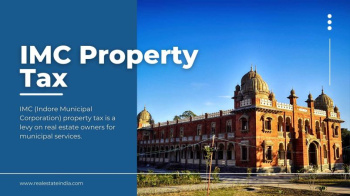
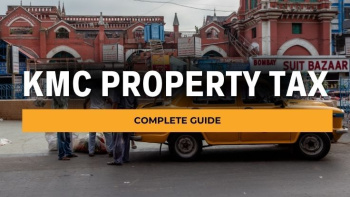
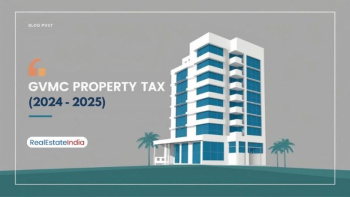
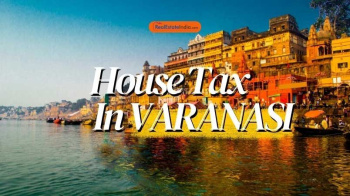

ADD COMMENT